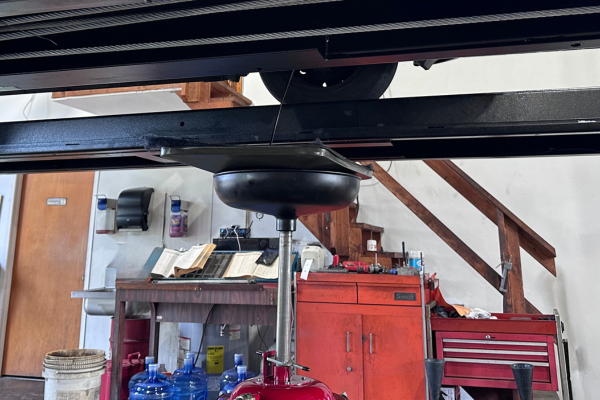Oil Change

An engine’s lifeblood is its oil, it lubricates its moving parts, lessens wear, dissipates heat, and lowers friction. However, oil degrades and gathers impurities over time. This deteriorated oil can cause catastrophic failure, increased engine wear, and decreased efficiency if left unchecked. Frequent oil changes preserve the engine’s health and performance by removing contaminants and restoring the oil’s protective properties.
The choice between conventional and synthetic oil is influenced by a number of factors. Crude oil is refined to produce conventional, or regular, oil. It is an economical and dependable option for vehicles that have less demanding engine requirements or that are older. It also performs well under normal driving situations.
On the other hand, synthetic oil is the ultimate in lubricating technology. It was made using chemical procedures and is intended to function well in very hot and humid environments. In comparison to ordinary oil, synthetic oil resists breakdown better, protects the engine better, and can increase fuel efficiency. Synthetic oil may initially cost more, but because of its longer lifespan and better protective properties, it can save money over time by lowering the need for frequent oil changes and averting costly engine repairs.

